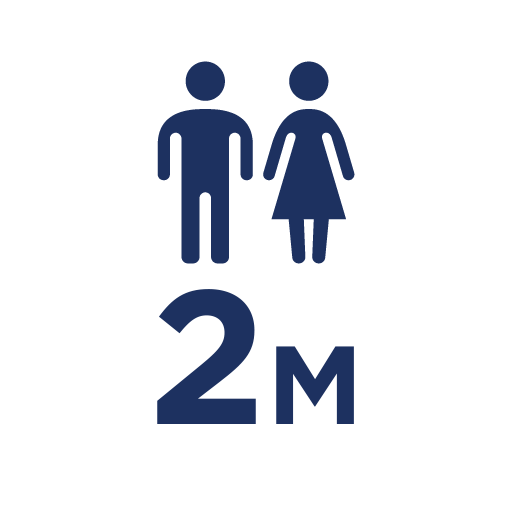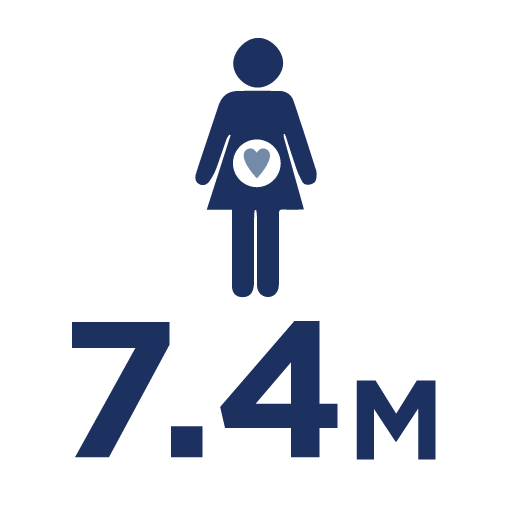What is Infertility?
Infertility is a condition in which a couple is unable to conceive. If a woman is over thirty-five, she is considered infertile after six months. Women who are able to become pregnant, but have difficulty staying pregnant may also be infertile. Infertility is a condition that affects both men and women.
What are the Symptoms of Infertility in Women?
The primary symptom of infertility is not being able to get pregnant. In women, other symptoms of infertility include:
- Abnormal periods
- Irregular periods
- No periods
- Painful periods
- Skin changes, including more acne
- Changes in sexual drive and desire
- Dark hair growth on the lips, chest, and chin
- Loss of hair or thinning hair
- Weight gain
What are the Symptoms of Infertility in Men?
In most cases, the symptoms in men go unnoticed until a man tries to conceive. Those symptoms may include:
- Changes in hair growth
- Changes in sexual drive and desire
- Pain, lump, or swelling in the testicles
- Problems with erections and ejaculation
- Small, firm testicles
What Causes Infertility in Women?
Infertility in women is most commonly caused by problems with ovulation. These problems are often caused by the following conditions:
- Polycystic Ovarian Syndrome (PCOS) - PCOS is the most common hormone imbalance problem in women. It causes problems with ovulation.
- Primary Ovarian Insufficiency (POI) - POI occurs when there is a loss of normal function in the ovaries before the age of 40. POI is not the same as premature menopause.
Other causes are less common but may include:
- Blocked Fallopian tubes - due to pelvic inflammatory disease, endometriosis, or surgery for an ectopic pregnancy
- Physical problems with the uterus or cervix
- Uterine fibroids - non-cancerous clumps of tissue and muscle on the walls of the uterus
- Cancer and its treatment - Certain cancers such as female reproductive cancers often impair female fertility, and both radiation and chemotherapy may affect fertility.
What Causes Infertility in Men?
In some cases, men can be born with problems that affect their sperm, however, other problems often start later in life. These causes may include:
- Varicoceles - enlarged veins within a man's scrotum. The enlarged veins increase the temperature around the testicle(s), affecting sperm count.
- Abnormal sperm production or function - due to undescended testicles, genetic defects, health problems such as diabetes or infections such as chlamydia, gonorrhea, mumps or HIV.
- Movement of the sperm - injuries or other damage to the reproductive system block the sperm.
- Genetic diseases such as cystic fibrosis
- Overexposure to certain environmental factors - cigarette smoking, alcohol, marijuana or taking certain medications
- Damage related to cancer and its treatment, including radiation or chemotherapy.
How is Infertility Treated?
There are various methods of treatment available to help couples with fertility. Options include medication, surgery, intrauterine insemination/artificial insemination or assisted reproductive technology (ART). In many cases, medication and intrauterine insemination are used at the same time. Treatments include:
- Intraunterine Insemination (IUI) – A sperm sample is placed directly into the woman’s uterus to increase chances of fertilization
- In Vitro Fertilization (IVF) – Egg and sperm are manually combined in a laboratory dish and the embryo is then transferred into the uterus
- Intracytoplasmic sperm injection (ICSI) – The act of injecting sperm into the cytoplasm of eggs so they can be used for IVF
- Zygote Intrafallopian Transfer (ZIFT) – Egg and sperm are combined manually in a laboratory dish and the embryo is then transferred into the Fallopian tube
- Gamete Intrafallopian Transfer (GIFT) – The woman’s eggs are removed, combined with sperm then immediately implanted into the Fallopian tubes
- Specialty Medications – Various medications are available to patients to help stimulate ovulation, increase the number of mature eggs or to help prepare a woman’s uterus for an embryo transfer. Gonadotropin-releasing hormones are a specialty medication used to treat infertility.
How does Noble help me manage my Infertility?
At Noble Health Services, we offer a variety of medications to help you treat your condition. We help you manage your condition through our Signature Care Program. Our program includes medication delivery, 24/7/365 on-call support, co-pay assistance and more.
For more information on what infertility medications we offer, please view the medication list.
For more information about infertility contact the following resources:
- The National Infertility Association
Phone: 1-703-556-7172
RESOLVE.org - American Pregnancy Organization
Phone: 1-800-672-2296
americanpregnancy.org - The Office of Women’s Health
Phone: 1-800-994-9662
womenshealth.gov


